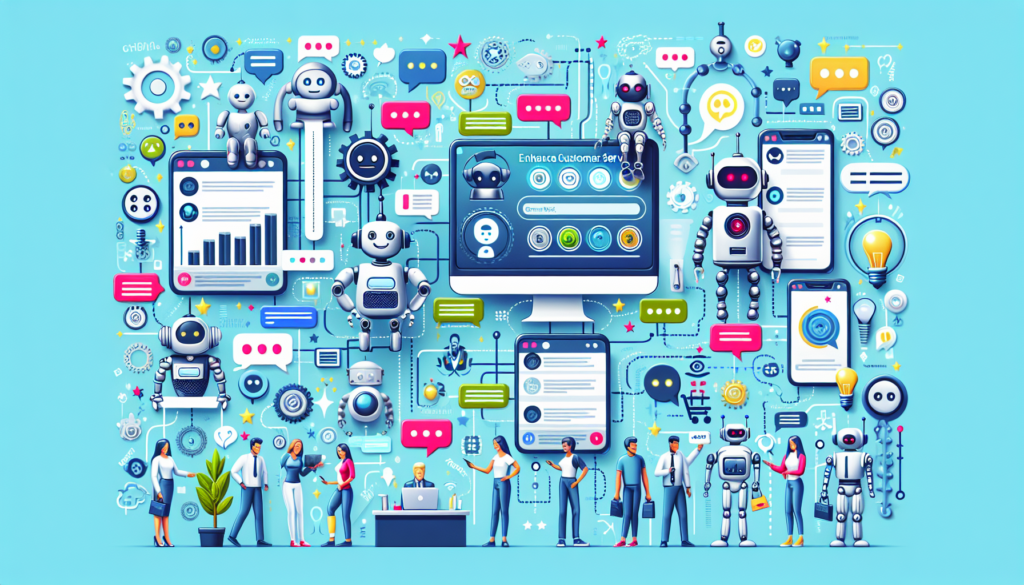In the age of e-commerce, customer service has transcended the traditional boundaries of human interaction to make way for chatbots, sophisticated artificial intelligence (AI) tools designed to revolutionize customer service. Chatbots are essential for online businesses looking to optimize resources and improve user experience. This article delves into the most advanced chatbot solutions on the market, exploring their technical peculiarities, practical applications, and the added value they offer to the digital consumer.
Key Technical Features
Machine Learning and Artificial Intelligence
The heart of an effective chatbot beats thanks to machine learning and artificial intelligence. These systems rely on algorithms that analyze and learn from user interactions to provide more accurate and personalized responses.
Natural Language Processing (NLP)
An outstanding chatbot must have advanced Natural Language Processing (NLP) capabilities. This allows it to understand and interpret human language with all its variants and complexities, and to respond in a way that is perceived as natural and coherent.
Omnichannel Integration
Omnichannel integration is another critical element. The best chatbots are not only found on the online store’s webpage; they also interact with customers across social platforms, messaging applications, and email, offering a unified customer service experience.
Leading Chatbot Platforms in the Market
IBM Watson Assistant
IBM Watson Assistant utilizes a powerful AI that continuously learns from context and feedback. It offers highly personalized responses and has the ability to integrate with a wide variety of systems, including mobile apps and IoT devices.
Google Dialogflow
Google Dialogflow stands out for its sophisticated NLP, which allows users to interact with chatbots in a very conversational manner. Its strong integration with Google Cloud Services makes it a prominent choice for those looking for scalability and a broad ecosystem.
Microsoft Bot Framework
Microsoft Bot Framework is notable for its connectivity with the Microsoft ecosystem, including Azure and Office 365. It provides robust development tools that allow for the creation of high-level chatbots with rich and contextual conversational capabilities.
Successful Cases in Practical Applications
Zara’s Case
Zara implemented a chatbot to improve its online customer service. Using advanced NLP, the bot was able to handle queries about stock availability, offers, and shipment tracking, resulting in a noticeable improvement in customer satisfaction and response efficiency.
Sephora’s Case
Sephora, the beauty product chain, incorporated a chatbot into its sales and support strategies. This bot not only responded to product queries but also provided personalized recommendations and makeup tutorials that increased customer interaction and cross-selling.
Future Directions and Possible Innovations in Chatbots
Enhanced Self-Learning
The next generation of chatbots is expected to have improved self-learning capabilities, allowing them to understand customer intentions more intuitively and adapt their responses more quickly and accurately over time.
Voice-Text Interaction
The integration of voice assistants with chatbots presents a promising field, with the possibility of seamlessly switching between voice and text interactions, without losing context or personalization, paving the way for a more fluid omnichannel experience.
Predictive Analytics
With the rise of predictive analytics, chatbots could anticipate customer needs before they are expressed, offering proactive solutions and increasing opportunities for sales and loyalty.
Conclusion
Chatbots have proven to be valuable tools for enhancing customer service in online stores, offering not only operational efficiency but also a rich and personalized user experience. Leading platforms such as IBM Watson Assistant, Google Dialogflow, and Microsoft Bot Framework, continue to evolve to offer businesses a competitive edge in an increasingly automated and customer-centric market. The integration of these technologies reflects a strategic and forward-looking approach that, through AI and advanced NLP capabilities, is charting a new landscape in digital customer service.

